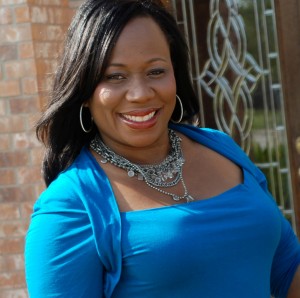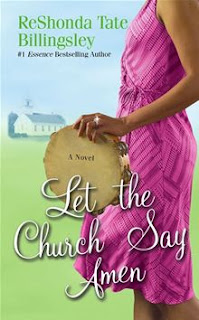Among
Michael Hiebert’s accolades is that he won the Surrey International Writer’s
Conference Storyteller’s Award twice – in a row. A Canadian family man, Michael
isn’t shy about exploring the mysteries that tingle our spines and set our
minds adrift wondering about the world and people around us. Much of his work
to date has been short stories released in anthologies, such as “Edges:
Collected Stories of Mystery” which includes the award-winning “My Lame Summer
Journal” and “Not Forgotten” containing the award-winning story “But Not
Forgotten.”
Though
Michael, rightfully, should be considered a mystery author, his protagonists
are generally young adult (YA), and he in fact wrote the novel “Dolls,” an
entertaining, yet somewhat disturbing, story of a young girl who discovers she
has the power through dolls to hurt people. But fear not. The story has a happy
ending with a lesson about responsibility well learned.
Now
Michael has released an intriguing novel titled “Dream with Little Angels.”
Once again the story is told through the eyes of a child, this time being
eleven-year-old Abe Teal, the son of Alvin, Alabama, investigator Leah Teal.
Where this story stands out is the uniqueness of portraying the events through
Abe’s eyes, because the story itself began a dozen years before Abe’s birth.
Abe witnesses his mother Leah’s frustrations at not having solved a child’s
murder, and how the killings may have started again. Then the nightmare comes
home to fully roost when Abe’s sister goes missing. We see, hear, and feel the
terror and confusion as Abe doesn’t understand what is happening, but tries his
best to hold his family together and provide the support his mother needs while
she solves the mystery. “Dream with Little Angels” is quality storytelling sure
to keep readers enthralled and waiting for the sequel, “Close to the Broken
Hearted,” due out next year.
Q)
The obvious question: Why elect to tell many of your stories through the eyes
of children,
especially since “Dream with Little Angels” is as much about Leah,
the mother, as Abe?
A)
Well, first, I love writing from a child's point of view, so I was immediately
drawn to telling the story that way. But that's not the main reason I chose Abe
as the central character. The main reason was because he offered the best
opportunity to get across the sense of innocence to the reader that I really
wanted to achieve. The book is really a coming-of-age story wrapped in a
mystery (or maybe it's the other way around), and the only way I could
convincingly portray that was to get readers close enough to Abe that they
could ignore (at times) what was going on in the other parts of the story. When
you think about it, this is a really horrible tale. Little girls are getting
raped and murdered. Yet, somehow, in the middle of all this, Abe is able to not
only make the reader care about the mundane events in the life of an eleven
year old boy, at times he even manages to add a sense of fun. It was a very
tough job balancing the horror part of the story with the sweetness of
childhood.
Q)
For years, you have been a writer other writers brag about having met, but have
remained relatively unknown to the mainstream of readers. “Dream with Little
Angels” suddenly has interviewers scrambling for your attention and bookstores
waiting to place the novel on their shelves. How have you dealt with this turn of
events?
A)
Writers bragged about meeting me? Wow. Who knew? :) It's funny, because my
mentor, Kristine Kathryn Rusch, told me eight or nine years ago that I was
going to be a successful novelist. "You just have to find the right
editor," she said. Or something to that effect. Since then, through the
years, I've always kicked myself for not following up with the question,
"So, when will that be, anyway?" I'm not sure why everything took as
long as it did, but I think it's good that it did. Any success I do have now, I
have the maturity to deal with it. I'm not sure I would have been able to deal
with these "turn of events" as you put it, back then.
Q)
I have to ask; what in the world inspired “Dolls”? That book is anything but
‘expected.’
A)
"Dolls" came out of nowhere. I was playing with my daughter one day,
doing crafts, and she was making paper dolls. And then my mind just made the
next leap: what if that were a paper doll of somebody. Then of course, the next
step: and what if we ran over it with her brother's Tonka truck? Doesn't
everyone think this way? :) The part of the story where Kite and her class
study "Animal Farm" in school was a shout out back to my short story
"My Lame Summer Journal by Brandon Harris Grade 7" where he has to
study "Of Mice and Men." "Animal Farm" was an obvious
choice especially since the slug line I had already been using for
"Dolls" was: "Absolute power corrupts absolutely, especially
twelve-year-old girls."
Q)
You live in Canada and placed “Dream with Little Angels” in Alabama. Why? And,
how much research did you do to make the setting so believable?
A)
When I first started writing the book, I had a friend who lived in Auburn,
Alabama, and I knew I'd be making some trips that way, so I'd have ample
opportunity to research the territory first hand. I also absolutely loved her
voice. The cadence automatically brought with it a sense of innocence and
tenderness that I think you also see in Harper Lee's "To Kill a
Mockingbird." I also found out, after starting work on the book, that many
of my friends in my writing circle used to live in the south--so it turned out
I had lots of places to draw on for research. I also used books and the
Internet and made a number of calls to the Mobile Police Department down in
Alabama who were fantastic with how forthcoming they were with information.
Q)
‘Dad’ doesn’t’ write “normal” children’s stories. How do your children feel
about what you do?
A)
When my children were quite young, I wrote a short story for them for Father's
Day. It was called "Fishbone & Fartboy" (this was when I only had
two kids), and it was about these things that kept showing up on the doorstep.
One was a bag with a bunch of fish carcasses and a little girl. She had fangs
and growled at me when her mother pulled her out, and she ate the knobs off all
the kitchen cabinets. The other thing that arrived at the door a couple years
later was a blue box with a baby boy inside packed in Styrofoam. Once unpacked,
he made farting sounds with his arm that were endearing for about seven seconds
before you became utterly unable to stand them anymore (my son was going
through a "fart" phase. If he could use anything to make the sound of
a fart, he would). Anyway, "Fishbone & Fartboy" quickly became
their favorite bedtime story. I probably read it to them every night for six
months. Eventually, it wound up being published in a U.K. horror magazine of
all places. So, I think there are aspects of my writing that my kids enjoy.
They'd probably like it better if Dad wasn't always on the computer pounding
away on the keyboard and spent more time doing stuff with them, I'm sure. I've
been writing so long, though, they don't really know me any other way.
Q)
Any parting thoughts for fans and readers new to your work?
A)
I would just like to say how much I appreciate their interest in my work and
that I hope I can continue to write stories that entertain them. There are a
lot of books out there, and it means a lot to me that they're showing interest
in mine when they have so many different ones to choose from. I'll try to keep
the surprises coming.
DA
Kentner is an award-winning author www.kevad.net



















